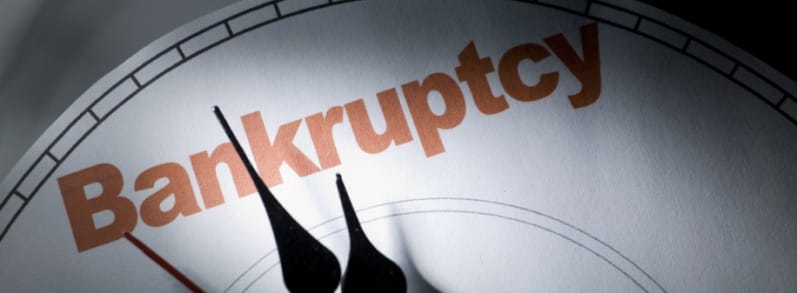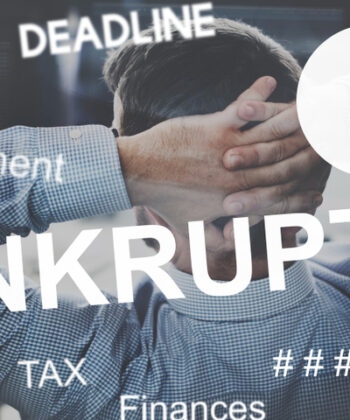
For many Americans, debt can quickly become overwhelming, leading to sleepless nights, stress, and uncertainty about the future. Bankruptcy, while often misunderstood, offers a legal solution to those who need a fresh financial start. Two of the most common forms of personal bankruptcy are Chapter 7 and Chapter 13, each with its own eligibility requirements, benefits, and drawbacks. Understanding the differences between these two options is crucial for anyone considering bankruptcy as a way to regain control of their finances.
What is Bankruptcy?
Bankruptcy is a legal process designed to help individuals and businesses eliminate or repay debts under the protection of the federal bankruptcy court. The primary goal is to provide honest debtors with relief from their debts while ensuring fair treatment for creditors. While bankruptcy can offer a path out of financial distress, it’s not a decision to take lightly, as it has long-term implications for your credit and future financial opportunities.
Chapter 7 Bankruptcy: The Liquidation Option
Chapter 7 bankruptcy, often referred to as “liquidation bankruptcy,” is the most common form of consumer bankruptcy. It’s designed for individuals who are unable to pay back their debts and have little to no disposable income.
How Chapter 7 Works
When you file for Chapter 7, a court-appointed trustee will review your assets and may sell (liquidate) non-exempt property to repay your creditors. Most filers are able to keep essential assets such as their home, car, and necessary personal belongings due to exemptions provided by state and federal law.
Once the process is complete, most unsecured debts—like credit card bills, medical bills, and personal loans—are discharged, meaning you are no longer legally required to pay them.
Advantages of Chapter 7
- Quick Relief: Most Chapter 7 cases are resolved within three to six months.
- No Repayment Plan: You are not required to repay discharged debts.
- Fresh Start: You can begin rebuilding your financial life almost immediately after discharge.
Disadvantages of Chapter 7
- Asset Loss: Some non-exempt property may be sold to pay creditors.
- Not All Debts Discharged: Certain debts, such as student loans, child support, and most taxes, are not eliminated.
- Credit Impact: A Chapter 7 filing stays on your credit report for up to 10 years.
Who Qualifies for Chapter 7?
Eligibility for Chapter 7 is determined by a “means test,” which compares your income to the state median. If your income is below the median, you typically qualify. If it’s higher, additional calculations determine if you have enough disposable income to repay debts under a Chapter 13 plan instead.
Chapter 13 Bankruptcy: The Repayment Plan
Chapter 13 bankruptcy is known as “reorganization bankruptcy.” Unlike Chapter 7, this option is for individuals who have regular income and can afford to pay back at least some of their debts over time.
How Chapter 13 Works
Filing for Chapter 13 allows you to keep your property while you make payments to creditors under a court-approved repayment plan, usually lasting three to five years. You make monthly payments to a bankruptcy trustee, who distributes the money to your creditors according to the plan.
At the end of the repayment period, any remaining unsecured debts may be discharged.
Advantages of Chapter 13
- Asset Protection: You generally keep all your property, including your home and car, as long as you keep up with your payments.
- Stop Foreclosure: Chapter 13 can stop foreclosure proceedings and allow you to catch up on missed mortgage payments.
- Discharge Additional Debts: Some debts that can not be discharged under Chapter 7 may be included in a Chapter 13 plan.
Disadvantages of Chapter 13
- Longer Process: Repayment plans last three to five years, requiring discipline and commitment.
- Disposable Income Required: You must have enough income to make your monthly plan payments.
- Credit Impact: Chapter 13 remains on your credit report for up to seven years.
Who Qualifies for Chapter 13?
To be eligible, you must have a regular income and your secured and unsecured debts must not exceed certain limits set by the bankruptcy code. Chapter 13 is often an option for those who don not qualify for Chapter 7 or who are seeking to protect assets from liquidation.
Key Differences Between Chapter 7 and Chapter 13
Feature
Chapter 7
Chapter 13
Type
Liquidation
Reorganization
Duration
3-6 months
3-5 years
Asset Protection
Some assets may be liquidated
Keep most or all assets
Debt Discharge
Most unsecured debts
Remainder after repayment plan
Income Requirement
Means test applies
Regular income required
Impact on Credit
10 years on credit report
7 years on credit report
Eligibility
Low income, below median
Regular income, debt limits apply
Which Option is Right for You?
Choosing between Chapter 7 and Chapter 13 bankruptcy depends on your unique financial situation, your goals, and your ability to meet the requirements of each chapter.
- Chapter 7 may be best if you have little income, few assets, and need a quick discharge of unsecured debts.
- Chapter 13 may be preferable if you have a steady income, significant assets you want to keep, or need to catch up on mortgage or car payments.
Because bankruptcy law is complex and the consequences are significant, consultation with an experienced Chicago bankruptcy attorney is highly recommended. A knowledgeable attorney can help you evaluate your situation, explain your legal options, and guide you through the process to ensure the best possible outcome.
Preparing for Bankruptcy
If you are considering bankruptcy, take the following steps:
- Gather Financial Records: Assemble documentation of your debts, income, assets, and expenses.
- Evaluate Alternatives: Consider debt consolidation, negotiation, or credit counseling before deciding on bankruptcy.
- Understand the Consequences: Bankruptcy will affect your credit, ability to buy a home, and potentially your employment.
- Consult a Professional: A legal expert can clarify your eligibility and help you avoid mistakes that could cost you time or money.
The Bottom Line
Bankruptcy isn not a one-size-fits-all solution, but for many, it provides the financial reset needed to move forward with life. Understanding the differences between Chapter 7 and Chapter 13 is the first step toward making the best decision for your future.
If you are feeling overwhelmed by debt, don not face it alone. Reach out to an experienced Chicago bankruptcy attorney who can help you explore your options, protect your rights, and put you on the path to a brighter financial future.




